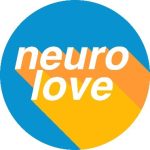NeuroLove: Staying Virtually Connected
The team at NeuroLove introduce their new online platform, created to help young people stay emotionally and physically well.
This guest post is published by the Rees Centre during the coronavirus pandemic.

NeuroLove is an interactive website offering mental health support and the opportunity to stay socially connected during the current, very strange times, that we’re living in. aim at NeuroLove is to reach out to those who are particularly vulnerable, especially young people with experiences of living in care, but anyone who might be struggling at the moment is welcome to use the website. Reports have highlighted the increased vulnerability of those who have current or underlying mental health issues in the current climate. Social distancing guidelines have made many people feel isolated and low. Staying indoors, hoarding food and increased exposure to the news have increased certain mental health issues like; anxiety, depression and eating disorders. Often meeting up with friends, grabbing a coffee or going to the gym are common ways to cope with negative thoughts and feelings. However, many of these common coping strategies have been restricted at the moment. We hope that people will think of NeuroLove as a virtual friend, offering positive ideas to make these times feel a little less lonely.
We’ve incorporated live classes and mentor sessions to bring real-world connection to an online platform. Young people can join our live sessions, learning a range of skills from baking the perfect (budget friendly) cupcake, to learning how to create video games, plus live classes to help with sleep, anxiety or low mood. If a young person wants to talk to a real person then our amazing Social Therapy team are on hand to listen and offer support. Our Social Therapists are trained to give confidential support around issues that young people often experience. NeuroLove could potentially be a vital platform for those alienated at this time.
If live sessions don’t fit with someone’s routine, they can look at the activity resource pages, where young people can take a walk around a museum, listen to podcast or make a positivity jar. By offering a selection of relevant apps, we hope to make life at home during COVID-19 crises a little more manageable.
NeuroLove was created by a diverse and incredibly dedicated team, including those who have shared similar experiences to young people living in care. Crucially, in creating the platform we had the involvement of a team of young people who helped us to shape the support offered. Complex issues that are often poorly understood were addressed by staff who had first hand experiences of these issues. We hope this brings a truthful view to mental health and leads to more effective support.
More information:
Digital solution to support youngsters in care during Covid-19
Digital Innovations tested to support vulnerable people during Covid-19 outbreak
This guest blog post is written by Shaunna Devine of the NeuroLove team. Contact Shaunna
Published by the Rees Centre during the coronavirus pandemic.
